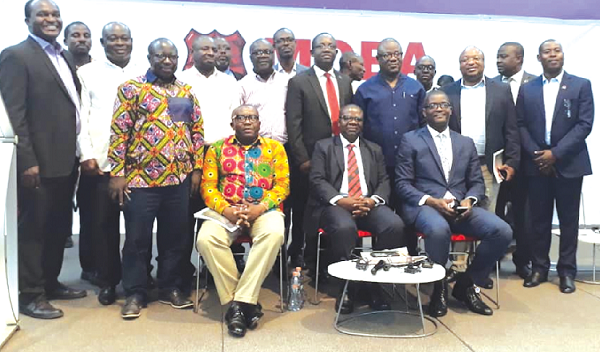A Senior lecturer at the Kwame Nkrumah University of Science and Technology (KNUST) has advocated the introduction of an electronic learning programme to complement the double-track system introduced in the country’s senior high schools (SHSs).
The lecturer, Dr Akwasi Adu-Boahen Opare, indicated that the move would enable students awaiting entrance into SHSs to spend their holidays productively.
The programme, he explained, should afford students the opportunity to access recorded lectures on various topics and soft copies of other educative materials on a public online portal to prevent students from losing focus on their academic agenda.
“The double-track system is a good one. But we also need to find innovative ways to make our students occupied while they are at home. It is very easy, in this day of advancement in technology. The Internet is there for us and we must take advantage of it,” he added.
Engagement series
Dr Opare made the proposal in an interview with the Daily Graphic on the sidelines of an engagement in Accra last Wednesday to discuss pressing matters affecting the development of the country.
The annual encounter, which was the third after its inception in 2016, was organised by the Mfantsipim Old Boys Association (MOBA) on the theme: “Harnessing resources through science and technology: The education and industry nexus”.
It assembled scores of alumni of the Mfantsipim Senior High School to brainstorm and reunite years after graduating from the school.
A five-member panel, which comprised alumni of Mfantsipim who have excelled in their various disciplines, was constituted to take charge of the discussions that centred on academia, industry, governance and policy.
Feasible
Dr Opare maintained that the proposed electronic learning initiative was feasible, given that “most students have smart phones and so they can read for themselves at any time, aside from their engagements on social media”.
He further proposed that to reduce cost and ensure the effective running of the suggested online platform, the Ghana Education Service (GES) and its stakeholders should engage and solicit for support from the private sector, particularly the telecommunication companies, as part of their corporate social responsibility.
He was, however, quick to add that to cater for students in rural areas and others who might encounter difficulty in accessing the Internet, collective effort was required to combine resources for the establishment of information and communications technology (ICT) centres in deprived communities to support the programme.
“This will even expose our students to the use of computers and encourage computer literacy among them,” he stated.
Investing in STI
The panellists agreed that the failure on the part of policy makers to prioritise and channel adequate resources into the development of science, technology and innovation (STI) disciplines had resulted in the churning out of graduates whose skills did not match what was required on the job market.
They further cautioned that if STI was not offered the needed consideration in all policy frameworks, the country risked a total fall in the capacity of its human resource in the near future.
The session ended with an appeal to the industrial sector to offer opportunities for internship to students to equip them with what was required on the job market.

